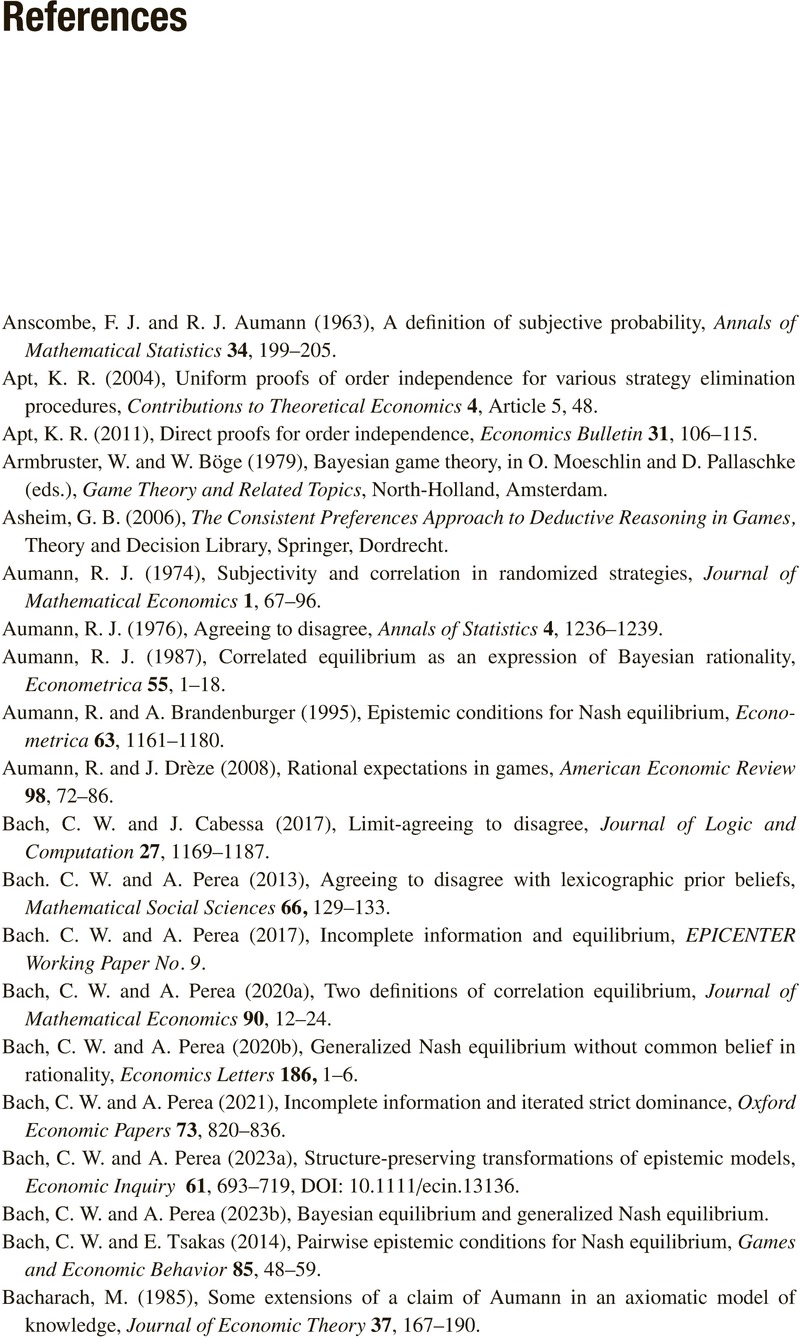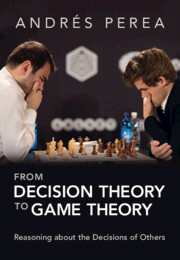References
Published online by Cambridge University Press: 17 June 2025
Summary

Information
- Type
- Chapter
- Information
- From Decision Theory to Game TheoryReasoning about the Decisions of Others, pp. 532 - 538Publisher: Cambridge University PressPrint publication year: 2025
